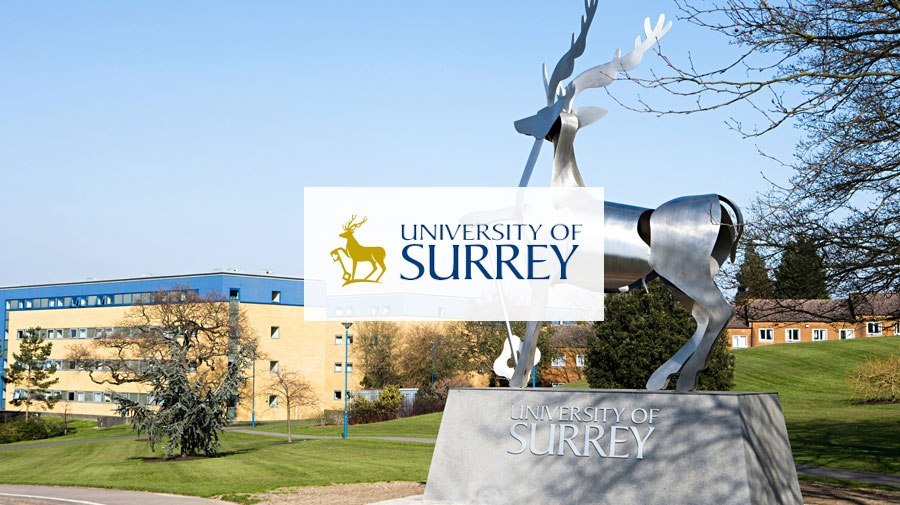Advanced Technology Institute PhD
Why choose this course
The Advanced Technology Institute (ATI) is one of the University of Surrey’s world-leading research centres. As a PhD student you will work alongside other ATI researchers in the areas of quantum information, nanotechnology, energy, microwave engineering, and advanced materials.
The ATI houses 160 researchers made up of engineers, physicists, materials scientists, biologists and chemists, approximately half of which are PhD students, allowing you to pursue truly multidisciplinary research.
It is likely you will have the opportunity to collaborate with scientists around the world, which will enhance your international outlook. As part of the larger Faculty Graduate School community, you will receive the training you need to become a fully-fledged researcher and drive the next generation of technology and innovation.
You will have access to ATI’s extensive set of equipment (over £40M invested) to fabricate, characterise, analyse and simulate, so that you can push the frontiers of physics and engineering, while also working closely with local, national, and international companies.
Additionally, you will be able to join the most appropriate professional institution based on your degree. This is nominally the Institute of Engineering and Technology (IET) and/or the Institute of Physics (IOP) as an Associate Member, and you will be entitled to apply for full membership after three years of postgraduate studies.
What you will study
Your research will sit in one of the ATI’s four research groups (Nanoelectronics, Photonics, Ion Beams, and Theory and Computation) which are united by cross-cutting themes such as science and technology on the nanoscale, technological applications of quantum science and engineering, and conversion of energy.
Your proposal for a new PhD topic will be examined with a holistic view on the field and its technical content, the excellence in the proposed research, its potential to provide new and fundamental insight to technical problems, and the ability of the Institute to be able to provide the best environment to facilitate the research.
You will be registered for a maximum four-year period of full-time study. After 12 months, you will write a Confirmation Report, which will be assessed by independent examiners. A detailed evaluation of progress and future research plans will be made every six months to ensure that progress towards completion of the PhD remains satisfactory.
A PhD normally lasts for three and a half years, during which time you will be supported by two academics who you will meet with on a regular basis. Postdoctoral researchers in the group also help with project steering, especially when the PhD work is part of a multinational or industry-focused programme.
The location of your research will depend on the needs of your project. You will be allocated office space in the ATI building, typically alongside researchers with related research interests. Depending on the specifics of your project, your time will be spent differently around the facility. Modelling projects are predominantly computer-based, while experimental ones involve work in the clean room and an assortment of labs. Like many PhD projects, yours may be collaborative and require travel for meetings with collaborators and to access specialised facilities.
You will submit a written PhD thesis after a minimum three years of full-time study, which will be examined in a viva by a combination of external and internal examiners, selected for their knowledge of the research field. The criteria for award of a PhD are the description of research whose content, rigour, originality and relevance are sufficient for publication in peer-reviewed journals.
Research support
The professional development of postgraduate researchers is supported by the Doctoral College, which provides training in essential skills through its Researcher Development Programme of workshops, mentoring and coaching. A dedicated postgraduate Careers and Employability team will help you prepare for a successful career after the completion of your Ph.D.
Research themes
- Photonics
- Quantum science and technology
- Nanomaterials
- Nanoscience and nanotechnology
- Advanced energy materials
- Flexible and printed electronics
- Sensors and smart environments
- Ion beams
- RF and microwave devices
- Micro and nanofabrication
- Microscopy and surface science
- Modelling and simulation
- Semiconductor devices
- Renewable energy systems.
Intakes
- Jan
- April
- July
Application Processing Time in Days: 20
Minimum English Language Requirements
| English Level Description | IELTS (1.0 -9.0) | TOEFL IBT (0-120) | TOEFL CBT (0-300) | PTE (10-90) | |
|---|---|---|---|---|---|
| Expert | 9 | 120 | 297-300 | 86-90 | |
| Very Good | 8.5 | 115-119 | 280-293 | 83-86 | |
| Very Good | 8 | 110-114 | 270-280 | 79-83 | |
| Good | 7.5 | 102-109 | 253-267 | 73-79 | |
| Good | 7 | 94-101 | 240-253 | 65-73 | |
| Competent | 6.5 | 79-93 | 213-233 | 58-65 | |
| Competent | 6 | 60-78 | 170-210 | 50-58 | |
| Modest | 5.5 | 46-59 | 133-210 | 43-50 | |
| Modest | 5 | 35-45 | 107-133 | 36-43 | |
| Limited | 4 | 32-34 | 97-103 | 30-36 | |
| Extremely Limited | < 4 | < 31 | < 93 | < 30 |
Admission Requirement / Eligibility Criteria
Applicants are expected to hold a first or upper-second class degree in a relevant discipline (or equivalent overseas qualification), or a lower second plus a good Masters degree (distinction normally required).
- Course Type: Part Time
- Course Level: Doctoral Degree/PhD
- Duration: 08 Year
-
Total Tuition Fee:
85600 GBP
Annual Cost of Living: 9207 GBP
Application Fee: N/A
Similar Programs
- Micro- and NanoMaterials and Technologies EngD at University of Surrey
- Engineering Materials PhD at University of Surrey
- Engineering Materials PhD at University of Surrey
- Engineering Materials PhD at University of Surrey
- Engineering Materials PhD at University of Surrey
- Biomedical Engineering PhD at University of Surrey

